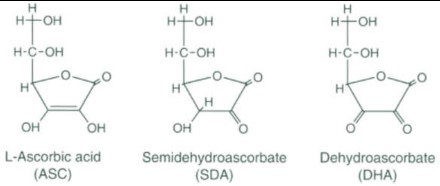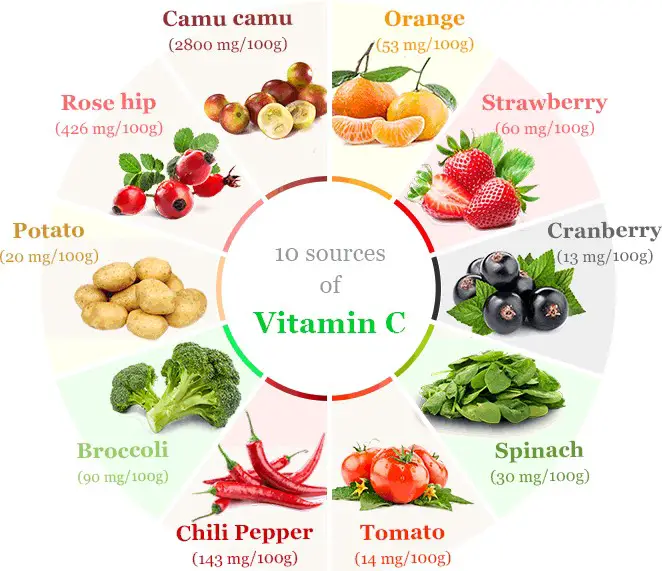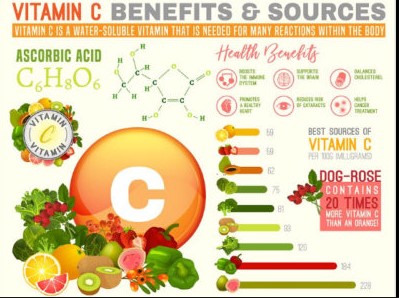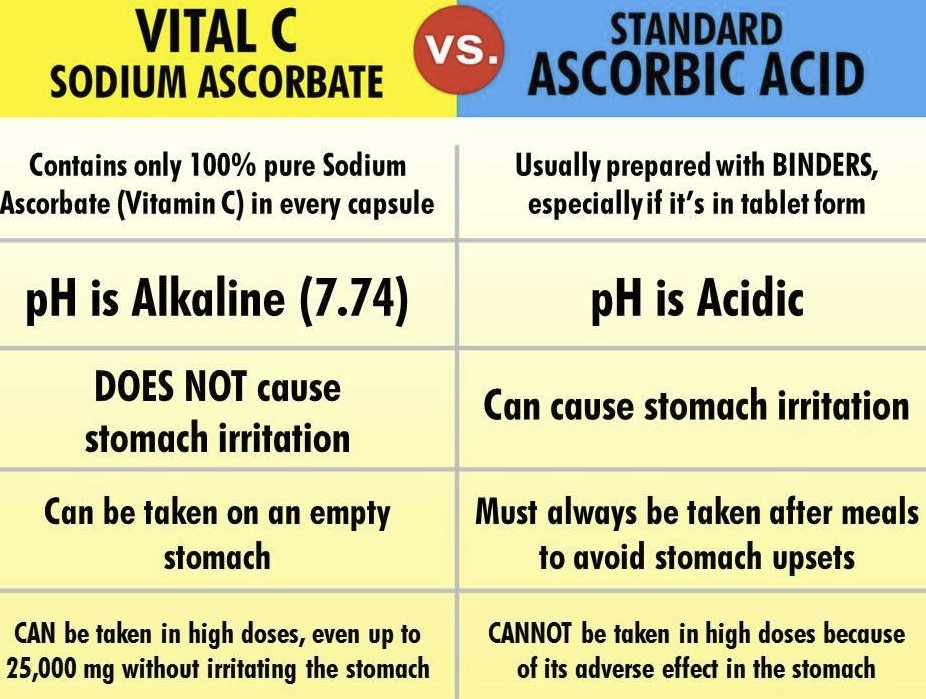Vitamin C, known scientifically as ascorbic acid, plays an indispensable role in human health. It is crucial for the growth, development, and repair of all body tissues, acting as an antioxidant to fend off free radicals and support the immune system. While most are familiar with the term “Vitamin C,” the specifics of ascorbic acid versus ascorbate often remain clouded in confusion, despite their close relationship.
Ascorbic acid and ascorbate refer to different forms of Vitamin C, with the primary difference lying in their chemical makeup and pH level. Ascorbic acid is the pure, unbuffered form of Vitamin C, characterized by its acidity. Ascorbate, on the other hand, is a salt derived from ascorbic acid and is less acidic due to the presence of mineral salts. This distinction is crucial for understanding their respective roles in dietary and supplemental forms.
The importance of distinguishing between these two forms extends beyond mere scientific curiosity. It has practical implications for dietary choices, supplement selection, and overall health strategies. Both forms offer significant health benefits, including boosting immune function, enhancing skin health, and preventing oxidative stress, but their differences in bioavailability and tolerance can guide individuals in making informed health decisions.

Vitamin C Essentials
Vitamin C, or ascorbic acid, is a vital nutrient for human health, involved in numerous bodily functions including the repair of tissue, the enzymatic production of certain neurotransmitters, and the functioning of the immune system. Its role in health and history is as rich and varied as it is crucial.
History and Discovery
Early Discoveries
The history of Vitamin C traces back to the 18th century when British naval surgeon James Lind discovered that citrus fruits could prevent scurvy, a deadly disease common among sailors on long voyages. However, the actual compound, ascorbic acid, was not isolated until the early 20th century. The discovery of Vitamin C was a milestone in nutritional science, demonstrating the essential role of vitamins in our diet.
Scurvy and Naval History
Scurvy, characterized by bleeding gums, weakness, and joint pain, was a major threat to sailors. The adoption of citrus fruits, rich in Vitamin C, aboard ships dramatically reduced the incidence of scurvy and highlighted the importance of this vitamin in human health.
Role in Health
Vitamin C is pivotal for its immune function, antioxidant properties, and role in collagen synthesis.
Immune Function
Vitamin C supports the immune system by enhancing the production of white blood cells, which help protect the body against infections. Additionally, it improves skin’s defense system and accelerates wound healing.
Antioxidant Properties
As an antioxidant, Vitamin C fights free radicals in the body, reducing oxidative stress and lowering the risk of chronic diseases such as heart disease and cancer.
Collagen Synthesis
Vitamin C is crucial for the synthesis of collagen, a protein that helps wounds heal, maintains skin elasticity, and supports bones and teeth. Without adequate Vitamin C, the body cannot produce or maintain collagen at optimal levels.

Ascorbic Acid
Ascorbic acid, the scientific name for Vitamin C, is a water-soluble vitamin found in various foods and sold as a dietary supplement.
Chemical Structure
The chemical composition of ascorbic acid is C6H8O6. It is known for its acidity, which contributes to its antioxidant properties, allowing it to donate electrons and neutralize free radicals.
Sources
Natural Sources
Fruits and vegetables are the best natural sources of ascorbic acid. Citrus fruits, strawberries, kiwi, guava, and vegetables like broccoli, Brussels sprouts, and bell peppers are particularly high in Vitamin C.
Supplemented Forms
Vitamin C is also available in dietary supplements, usually in the form of ascorbic acid. These supplements can help people meet their daily Vitamin C needs, especially if they struggle to get enough from their diet alone.
Health Benefits
The health benefits of ascorbic acid are extensive, supporting overall wellness in several ways.
Detailed Benefits
- Immune support: Enhances the immune system’s ability to fight off infections.
- Antioxidant activity: Protects the body’s cells from damage by free radicals.
- Collagen production: Essential for the growth and repair of tissues throughout the body.
Comparative Effectiveness
Compared to other antioxidants, ascorbic acid is uniquely effective due to its ability to regenerate other antioxidants within the body, such as vitamin E, amplifying its protective effects.

Ascorbate
Ascorbate refers to the salt forms of ascorbic acid, which are less acidic and, therefore, often more stomach-friendly.
Chemical Structure
Ascorbate is the ionized form of ascorbic acid, making it less acidic by neutralizing its pH with mineral salts. This alteration in chemical structure affects its absorption and bioavailability.
Sources
Differences in Sources
While ascorbic acid is found naturally in fruits and vegetables, ascorbate is usually created in the laboratory for use in supplements. Some forms of ascorbate include sodium ascorbate, calcium ascorbate, and magnesium ascorbate.
Health Implications
Ascorbate shares many of the same health benefits as ascorbic acid but is often recommended for those with sensitive stomachs due to its less acidic nature.
Unique Benefits
Ascorbate is beneficial for individuals who require high doses of Vitamin C but cannot tolerate the acidity of ascorbic acid. It’s also used in some skincare products for its stability and less irritating properties.
Absorption and Bioavailability
Though ascorbic acid and ascorbate differ chemically, their absorption in the intestine is similar. However, ascorbate is considered gentler on the stomach, making it a preferred option for those with gastrointestinal sensitivity.

Comparison
Understanding the distinctions between ascorbic acid and ascorbate is crucial for optimizing health benefits and minimizing potential risks associated with their intake. This section dives into the chemical and biological differences between these two forms of Vitamin C, their absorption rates, efficacy in the human body, and the implications for usage and dosage.
Chemical Differences
Structural Variations
At the molecular level, ascorbic acid is recognized for its pure form of Vitamin C, which is acidic due to the presence of a high concentration of hydrogen ions. Ascorbate, on the other hand, refers to the salt form, which combines ascorbic acid with a base, such as sodium or calcium, to neutralize its acidity. This difference in chemical structure affects not just their pH but also their stability and solubility in water.
Biological Impact
Absorption Rates
The absorption of Vitamin C in the gastrointestinal tract is similar for both ascorbic acid and ascorbate, with studies showing that the body can effectively use both forms. However, the less acidic nature of ascorbate may lead to a more comfortable digestive experience for some people, potentially affecting their choice between the two.
Efficacy in the Human Body
Once absorbed, both forms of Vitamin C are effective in supporting bodily functions. They act as potent antioxidants, aid in the synthesis of collagen, and support the immune system. The choice between ascorbic acid and ascorbate may, therefore, be more about personal tolerance and preference than about efficacy.
Usage and Dosage
Dietary Recommendations
Daily Requirements
Health authorities recommend a daily intake of Vitamin C that varies by age, sex, and life stage. Generally, adults are advised to consume 65 to 90 milligrams a day, with an upper limit of 2,000 milligrams a day to avoid health complications. Consuming a balanced diet rich in fruits and vegetables can typically meet these requirements.
Risk of Deficiency
Vitamin C deficiency can lead to scurvy, characterized by anemia, bleeding gums, bruising, and poor wound healing. Though rare in modern diets, certain groups, including smokers and individuals with limited food variety, may be at risk.
Supplementation
Forms of Supplements
Vitamin C supplements come in various forms, including ascorbic acid and its ascorbate salts (e.g., sodium ascorbate, calcium ascorbate). Each form has its benefits, with ascorbic acid being more commonly found and ascorbate options offering a gentler alternative for those with sensitive stomachs.
How to Choose
Selecting the right form of Vitamin C supplement involves considering several factors:
- Dietary restrictions: Vegetarians or vegans may prefer certain types of ascorbate salts.
- Health conditions: Those with stomach sensitivity might opt for ascorbate forms.
- Intended use: Higher doses of Vitamin C for therapeutic purposes may be better tolerated in ascorbate form.
Safety and Side Effects
Tolerable Intake Levels
While Vitamin C is generally safe, consuming it in extremely high doses can lead to adverse effects. The upper intake level (UL) for adults is set at 2,000 mg per day. Staying within recommended daily allowances minimizes the risk of side effects.
Potential Risks
Side Effects
High doses of Vitamin C, particularly in the form of ascorbic acid, can cause gastrointestinal disturbances such as diarrhea, nausea, and abdominal cramps. Ascorbate salts may be less likely to cause these issues due to their lower acidity.
Interactions with Medications
Vitamin C can interact with certain medications, altering their effectiveness. For example, it can increase the absorption of iron from the gastrointestinal tract, which is beneficial for individuals with iron deficiency anemia but may be harmful to those with conditions like hemochromatosis. It’s important to consult with a healthcare provider before starting any new supplement, especially if you are taking medications.

Frequently Asked Questions
Can you substitute one for the other?
While ascorbic acid and ascorbate both provide Vitamin C, they are not always interchangeable. The choice between them depends on individual health needs and sensitivities. Ascorbic acid, being more acidic, may cause gastrointestinal issues in some, whereas ascorbate, with its buffered form, is generally gentler on the stomach. Individuals should consider these factors, along with the intended use and any health conditions, when choosing between them.
How does cooking affect their potency?
Cooking can reduce the potency of both ascorbic acid and ascorbate, as Vitamin C is sensitive to heat, light, and air. Extended cooking times and high temperatures can significantly decrease their Vitamin C content. To preserve their nutritional value, it’s recommended to use minimal cooking times and methods that retain moisture, such as steaming or microwaving.
Are there people who should avoid one or both?
Individuals with certain health conditions, such as a history of kidney stones or sensitivity to acidic foods, may need to avoid ascorbic acid due to its acidity. Conversely, ascorbate is generally considered safer for those with sensitive stomachs or those at risk of gastrointestinal distress. However, it’s always best to consult with a healthcare provider before making any changes to supplement routines, especially for those with underlying health conditions.
Conclusion
Understanding the difference between ascorbic acid and ascorbate is more than an exercise in chemistry; it’s a fundamental aspect of making informed health decisions. Both forms of Vitamin C play vital roles in maintaining health and wellness, but their differences can significantly impact their suitability for individuals based on their specific health profiles and dietary needs.
Choosing the right form of Vitamin C is a crucial step toward optimizing health outcomes and enhancing one’s quality of life. By considering factors such as bioavailability, gastrointestinal tolerance, and individual health conditions, individuals can select the Vitamin C form that best aligns with their health goals and dietary preferences, ensuring they reap the full spectrum of benefits this essential nutrient has to offer.

